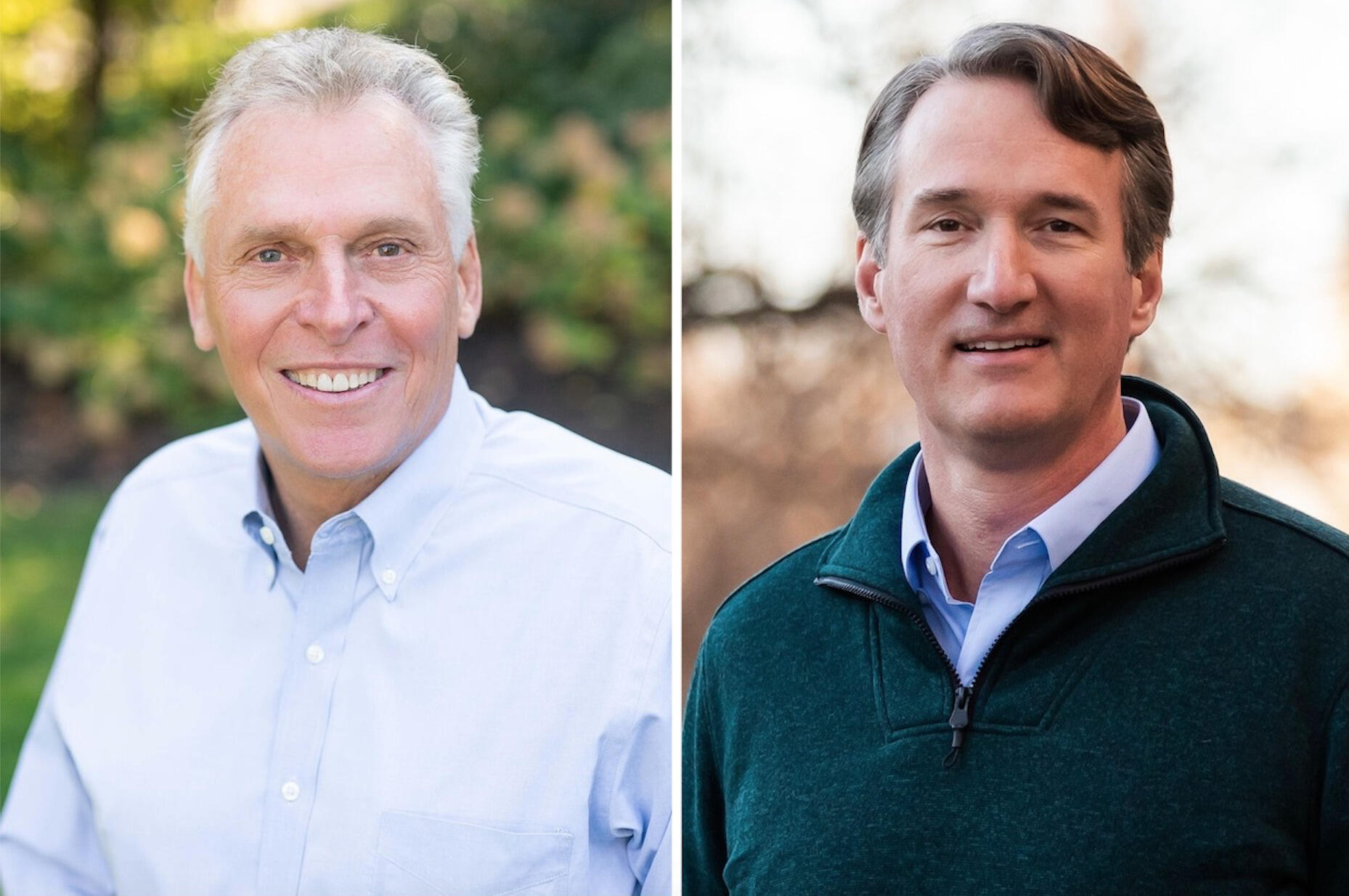
Aug. 20, 2021
McAuliffe and Youngkin in a virtual tie in race for governor
Share this story
In the race to become the next governor of Virginia, 40% of likely voters would vote for Terry McAuliffe while 37% would vote for Glenn Youngkin, according to a new statewide poll conducted by the L. Douglas Wilder School of Government and Public Affairs at Virginia Commonwealth University.
Virginia voters who already know for whom they will vote were consistent in their preferences across statewide races, yet, with less than three months to go before Election Day, a significant number of voters remain undecided or unwilling to vote for either candidate in each race. In the governor’s race, 23% of voters remain undecided or unwilling to vote for either candidate.
The poll featured landline and mobile telephone interviews from Aug. 4-15 with a representative sample of 823 adults living in Virginia. It has a margin of error of 5.23%.
In the race for lieutenant governor, Democrat Hala Ayala has a larger lead over Republican Winsome Sears (39% to 31% respectively). However, 12% of voters are undecided about this race and 17% are unwilling to vote for either candidate.
In the race for attorney general, Democrat Mark Herring has the largest lead of all statewide candidates (41%), while 30% support Republican Jason Miyares. Ten percent of likely voters are undecided in this race and 19% are unwilling to vote for either candidate.
“As of this survey, there have been no debates between the candidates for governor or lieutenant governor. The gubernatorial candidates are in a virtual dead heat (McAuliffe 40%, Youngkin 37%). That could change once positions are taken on the issues. The lieutenant governor’s race showing the largest difference (Ayala 39%, Sears 31%) could also be affected. The attorney general race has 19% of the voters unwilling to vote for either candidate added to the 10% undecided leaves one-third of the voters who could tighten that contest. How the pandemic affects turnout and enthusiasm energizes voters should be of utmost concern,” said former Gov. L. Douglas Wilder.
Poll respondents were also asked which party they would rather see in control of the Virginia General Assembly. All 100 House of Delegates seats are up for election in November, with Democrats currently holding a 55-45 advantage. Voters are, once again, split on which party they prefer to control the chamber. Democrats have a slight edge over Republicans (44% vs. 40%, respectively) with 6% of voters undecided.
In the gubernatorial race, McAuliffe has a sizeable lead in Northern Virginia (51% to 24%) while Youngkin leads in the west (52% to 32%). Voters are split in the south central region, with 34% supporting Youngkin and 32% supporting McAuliffe, and in Tidewater, with 42% supporting McAuliffe and 37% supporting Youngkin. The largest proportions of undecided voters (33%) are in the south central region
Similar regional differences were found in the other statewide races. In the lieutenant governor race, Ayala has a sizeable lead in Northern Virginia (50% to 21%) and south central (38% to 29%), while Sears leads in the west (42% to 32%) and northwest (38% to 22%). Voters in the Tidewater region of the state were evenly split, 37% for Ayala and 33% for Sears.
In the attorney general race, Herring has a sizeable lead in Northern Virginia (47% to 22%) and in the south central region (38% to 27%). Voters are split in the other three regions: In the northwest, 37% of voters support Miyares and 34% support Herring, while in the west 37% support Herring and 38% support Miyares. In the Tidewater region, 36% support Herring while 33% support Miyares.
In terms of job approval for those already in office, respondents are split on how Gov. Ralph Northam is handling his job with 51% saying they approve and 42% saying they disapprove. Minority and/or Hispanic respondents (65%) are more likely than white, non-Hispanic respondents (44%) to approve of Northam’s job performance.
Virginians show strongest approval for Northam’s handling of COVID-19 (57%) and public education (52%), but less than half of respondents approve of how he has handled health care (47%), racial inequity (47%), the environment (44%) and the state budget (41%).
Additionally, Virginians are split on their approval of President Joe Biden with 51% approving and 47% disapproving of his current job performance.
For the full poll results and analysis, visit https://oppo.vcu.edu/policy-poll/.
Subscribe to VCU News
Subscribe to VCU News at newsletter.vcu.edu and receive a selection of stories, videos, photos, news clips and event listings in your inbox.







